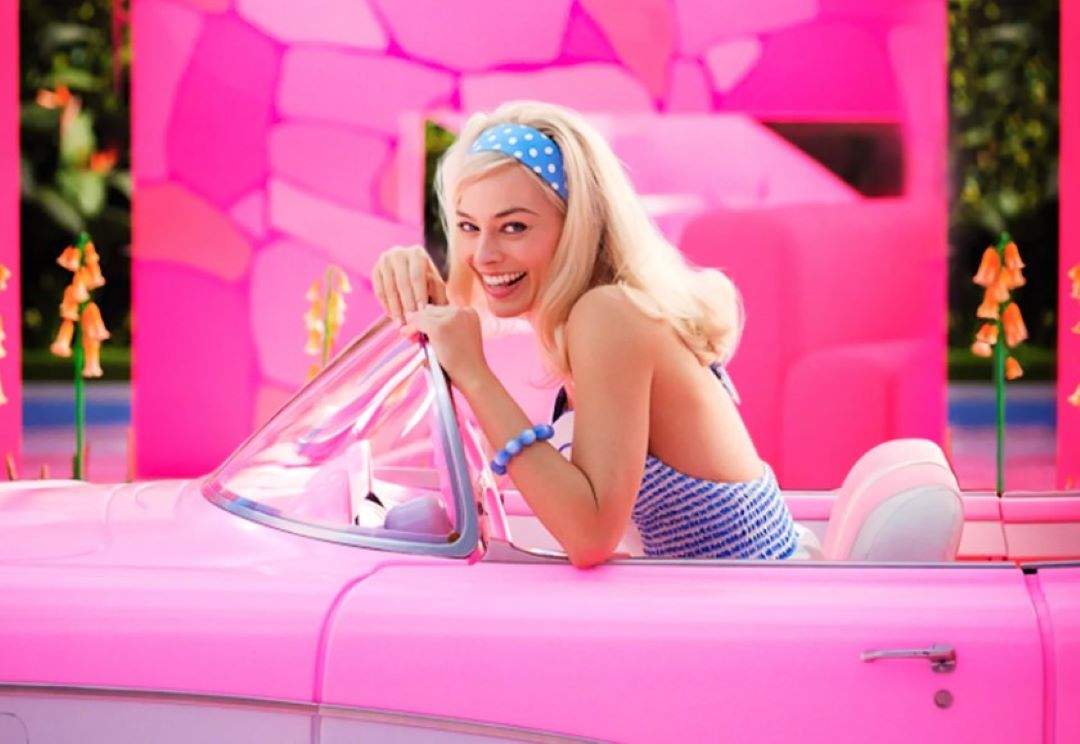The season of Barbie is over. The juxtaposition dream of a one-two punch at the theater of a whimsical movie based on the most popular doll of all time and a serious movie about the man who invented the atomic bomb has passed. Margot Robbie defaulted back to the girl who got naked in The Wolf Of Wall Street rather than the savior of cinema and the patron saint of women. The world finally came to terms with the fact that “beach off” was never funny. Mattel is high on the smell of money, money, money and is looking to build its cinematic universe with a purported fourteen films in development — never mind all of that stifled laughter.
So, of course, I finally got around to watching Barbie six months too late. Relax, white knights ready to take me to task for the latent sexism present in my lack of support for a movie that made women finally feel understood in a way that Magic Mike and Fifty Shades of Gray did not. I haven’t seen Oppenheimer yet either. So, it’s not discrimination. I just didn’t care. I watched the Barbie phenomenon come and go like a wafting pink fart.

Yet, today, after the dust has settled, I was finally ready to examine the movie that powered message board discussions and sent fifty-year-old women into theaters dressed in their favorite Barbie-inspired outfit and had them exit theaters in their tear-stained favorite Barbie-inspired outfit.
Is That You Stanley?
Greta Gerwig crafted a film that brings to mind flawed Kubrick movies like Eyes Wide Shut or A.I. Seriously. Brain power is applied to this movie, and it raises some interesting things to think about. Yet, it is all built on a shaky foundation and crumbles under the weight of its aspirations.
Speaking from a point of view that considers a movie as a structured story, Barbie is rather boring. It starts off well-enough – good, in fact. It creates an interesting world and injects an intriguing problem, which sends the hero off on a quest to overcome. It even achieves the remarkable feat of making Kate McKinnon somewhat tolerable.
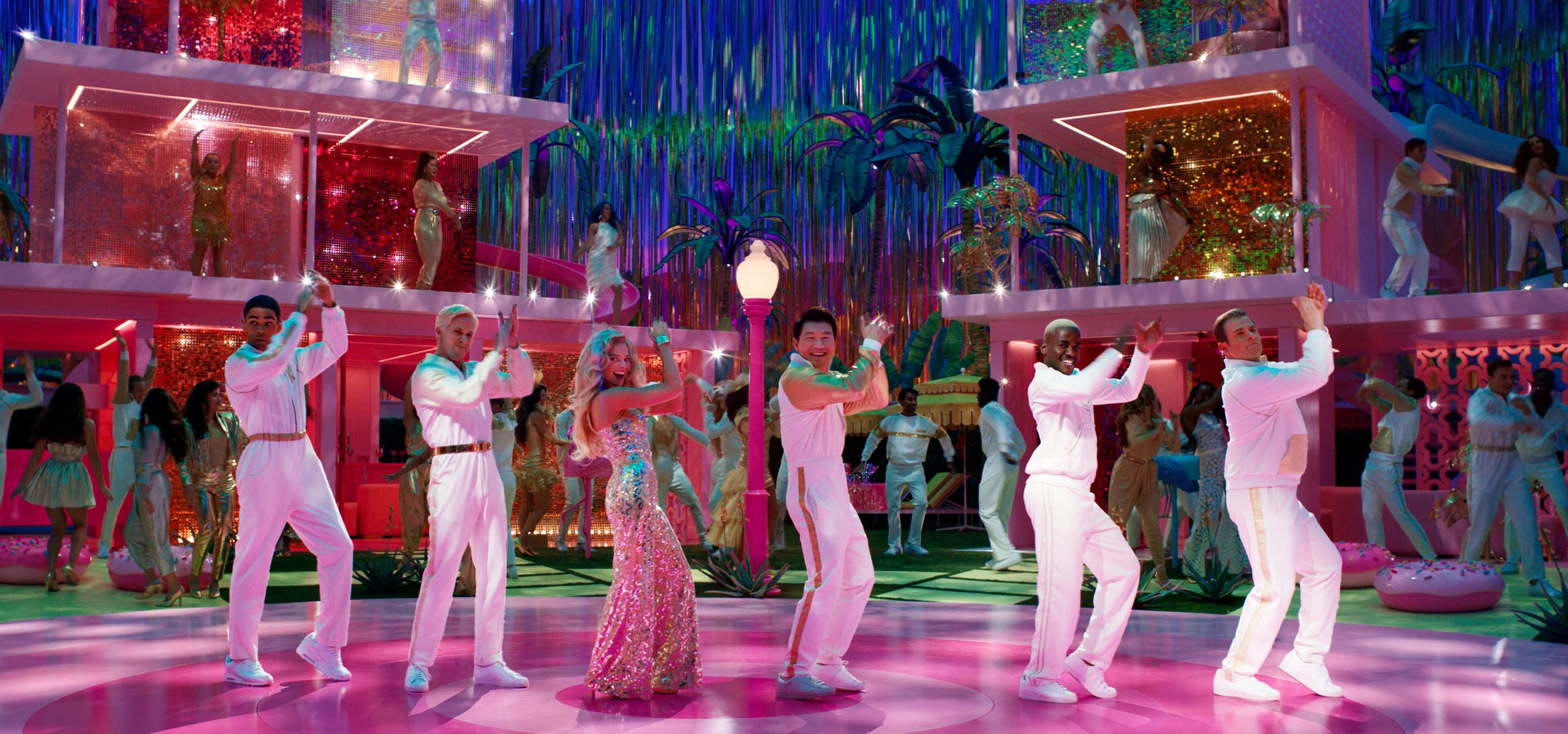
Then the wheels come off. The quest is cast aside fairly early, and Barbie becomes more sermon than story as it drags on way, way too long with a commentary on the patriarchy.
Drop the patriarchy stuff, and you got yourself a solid movie about womanhood. I genuinely could have enjoyed that film. Everyone could have enjoyed that film. Honestly, I’m not sure anyone fully enjoyed Barbie as it stands. The love for the Barbie movie smells of rally-round-the-flag to me. It’s the same kind of love people had for the Macarena. Here today, gone tomorrow. When the gender follies have reached an even stupider level in five years, no one will remember the answers they thought Barbie provided in 2023. Plus, they will be too busy fighting the mutant rats with telepathic powers rising from the sewers.
Put Another Simp On The Barbie
The movie starts off with Barbie living her perfect life in Barbie-land. As stereotypical Barbie, she parties every night in her dreamhouse, surrounded by all of the other adoring Barbies. There is President Barbie, Writer Barbie, Garbagewoman Barbies, and more. It is a female-dominated society, and all goes well until the girl playing with Barbie in the real world develops an existential crisis.
Thoughts of death, anxiety, and the other perks of growing older trickle down to Barbie, which lead to Barbie entering the real world to fix the problem.
This is a solid premise. The movie should have stuck with it. An idealized Barbie trying to function in the real world is gold. Instead, all of that is cast aside in favor of a story that is rocky, albeit simp-friendly – how the patriarchy then infects and ruins Barbie-land.
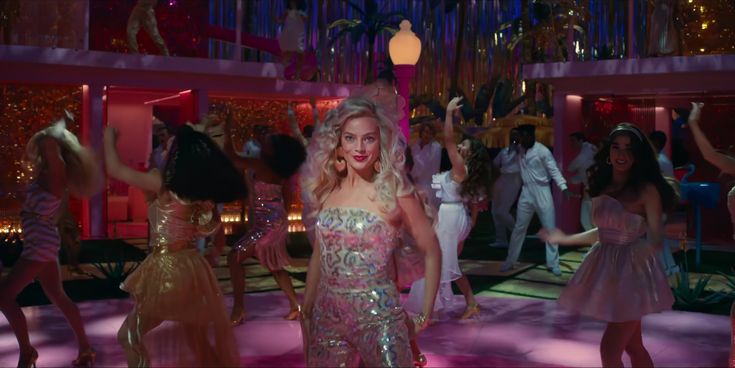
One gets the sense that the filmmakers aren’t exactly sure how to present this concept. It is a confusing mish-mash of Barbies turning into beer-serving dingbats while the Kens act like guys who probably know the lyrics to every Limp Bizkit song ever.
It all culminates in some sort of Kens vs. Kens dance battle while Barbies deprogram each other with empowering speeches, which enters fully into what-the-heck territory. Whenever a movie visits what-the-heck territory, it deserves some props. Point awarded to Barbie for trying, but it is still a mess.
Another problem this creates is that Margot Robbie’s Barbie is sidelined. I just watched it, and I can’t think of a single thing she did in the last half of the movie other than be present. That’s not good when the title character gets lost in the noise. Margot Robbie is nothing special in the role, but the movie does her no favors. All she gets to do is be blond, smile, and cry while the movie tries to preach it, sister!
Kenough Is Kenough
Going into the Barbie, I heard good things about Ryan Gosling as Ken. These good tidings were greatly exaggerated. It was startling to see the filmmakers work so hard to present women as many-faceted jewels while simultaneously displaying cluelessness about men.
Granted, there is a difference between men who are pursuing a woman and men who have achieved relationship status with a woman pursued. The former can get crazy. The latter has entered the Zen state best summed up by the old saying, “No matter how wonderful a girl is, somewhere, some guy is sick of her crap.”
Ken is of the unrequited former variety, so a degree of kooky is expected from his character. That’s not the problem. The problem is that Ken’s final manifestation of manhood is pure cartoon.

The essence of man is not trucks, horses, and beer. The essence of man is to solve problems as soon as possible so their brains can go back to non-problem mode as soon as possible. Non-problem mode can manifest itself in various ways: hobbies, watching TV, sports, whatever.
Why do men like to hang out with men? Because men don’t always talk about their problems. Women on the other hand, they love to talk about their problems, and then they have a trait where talking is all they want to do about the issue. Solving the problem is not even on the table.
Once a movie ceases to be a movie and wants to be a sermon, it needs to get these things right. Barbie does not. Rather, it preaches to the choir. The bad news is that its philosophy is self-defeating.
Barbie Is More Humanism Than Humanism
Here’s the basic problem with storytellers today. Storytellers of yesterday believed in something outside of themselves. Call it God, principles, morals, meaning, whatever. We are not here to debate cause. We are here to debate effect. Today’s storytellers were taught to believe in themselves. This is why they keep inserting themselves and their hobbyhorses into our entertainment.
At the end of the day, humanism is the philosophy that drives Barbie. Everything is all about you. One of the greatest sins of humanism is the denial of self-actualization. If you can’t be free to be yourself, you are failing. Okay, but what if you’re an asshat?
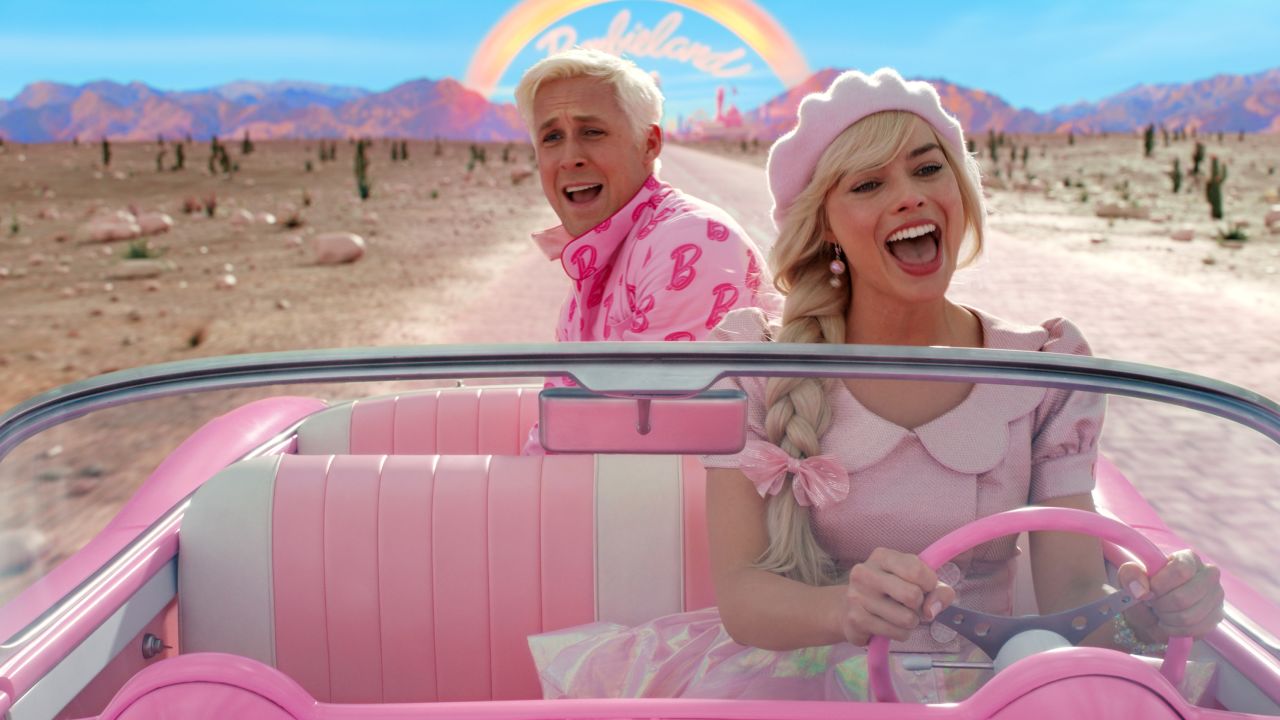
The rallying point of Barbie is America Ferrera’s woman speech.
It is literally impossible to be a woman. You are so beautiful, and so smart, and it kills me that you don’t think you’re good enough. Like, we have to always be extraordinary, but somehow we’re always doing it wrong. You have to be thin, but not too thin. And you can never say you want to be thin. You have to say you want to be healthy, but also you have to be thin. You have to have money, but you can’t ask for money because that’s crass. You have to be a boss, but you can’t be mean. You have to lead, but you can’t squash other people’s ideas. You’re supposed to love being a mother, but don’t talk about your kids all the damn time. You have to be a career woman but also always be looking out for other people. You have to answer for men’s bad behavior, which is insane, but if you point that out, you’re accused of complaining. You’re supposed to stay pretty for men, but not so pretty that you tempt them too much or that you threaten other women because you’re supposed to be a part of the sisterhood.
That is the creed of a neurotic person.
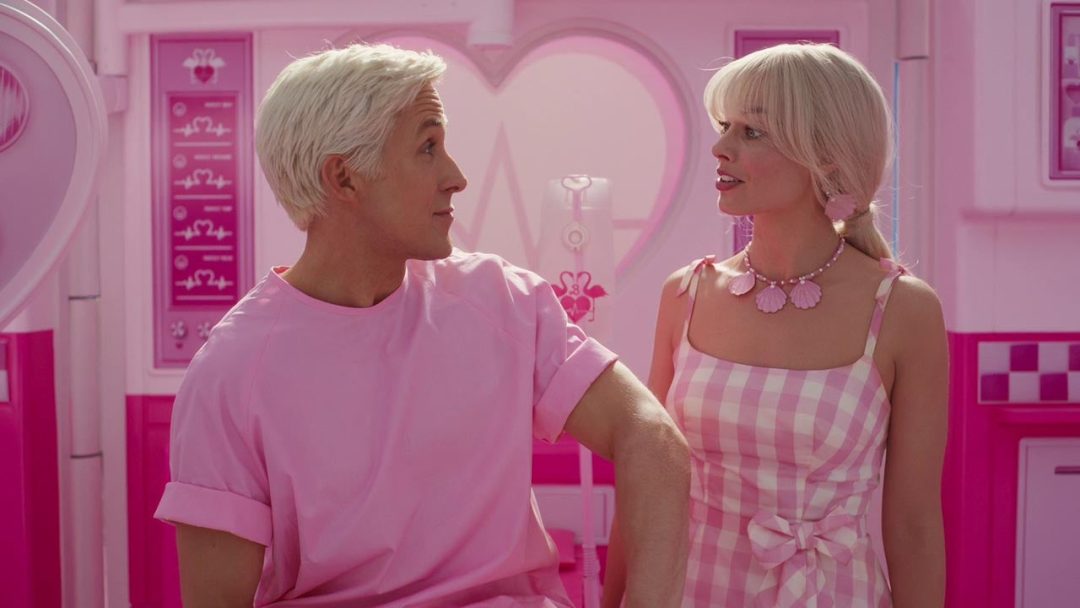
How is a neurotic person supposed to function on a believe-in-yourself philosophy? They are then believing in their neuroses. The coping strategy is to rationalize that a person’s flaws are what makes them strong. If flaws make something strong, then the engineering world is doing things wrong. Yet, when it comes to humans, flaws are glorified in the believe-in-yourself system.
This is where people who believe in something outside of themselves have the edge. People who believe in something outside themselves typically believe in something that is flawless or has the potential to be flawless if done right. This gives them something to aspire to, plus something to measure themselves against to the point where they can realize, “Yikes, I’m an asshat! I should change that!”
Barbie Ba-tum-tss!
This brings us to the end of the movie. It’s a ba-tum-tss! moment that partially redeems the film. Barbie goes to a gynecologist.
Considering the movie starts with a homage to 2001 where little girls bash their baby dolls to pieces, I interpret this as Barbie rejecting feminism harpies and embracing more traditional values. Or maybe she is just getting checked for STDs. That is also considered empowering these days.
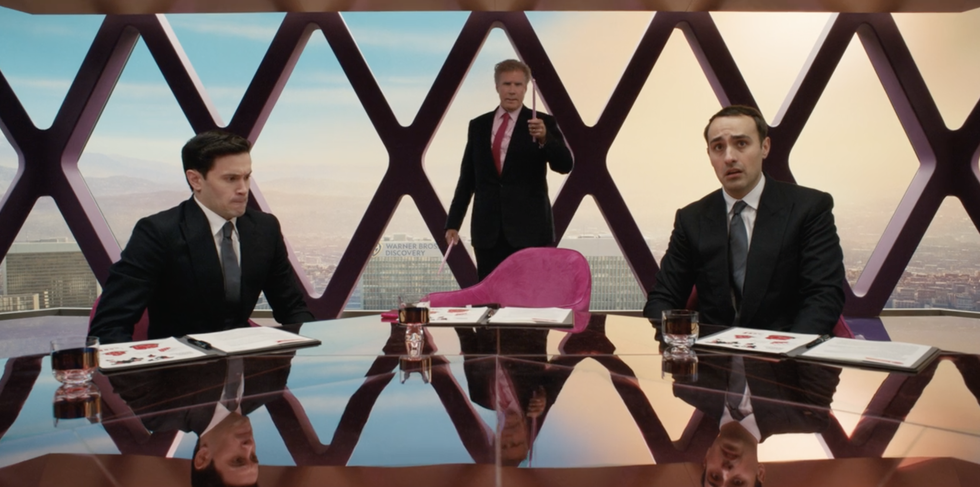
Barbie is not a particularly good film, but it is an interesting film. Barbie-land is nicely realized visually. I expected a comedy in the vein of The Brady Bunch Movie and got something fairly weird and grand in scope. It genuinely tries, but it is hobbled by the fact that it doesn’t understand that it doesn’t matter that Barbie refused to get back in a box within the film. The whole movie proceeded forth from a different box. For example, how is this statement from the movie not putting every woman who watches it into a box?
“It is literally impossible to be a woman.”
How does that even make sense? Women have been being women for a long, long time. Many have even thrived at it, in fact. In light of that, there comes a time when one has to realize, maybe it’s not the patriarchy, calories, douchebag boyfriends, gray hairs, or lack of blinker fluid causing the issues.
Maybe it’s Maybelline…

Check back every day for movie news and reviews at the Last Movie Outpost



